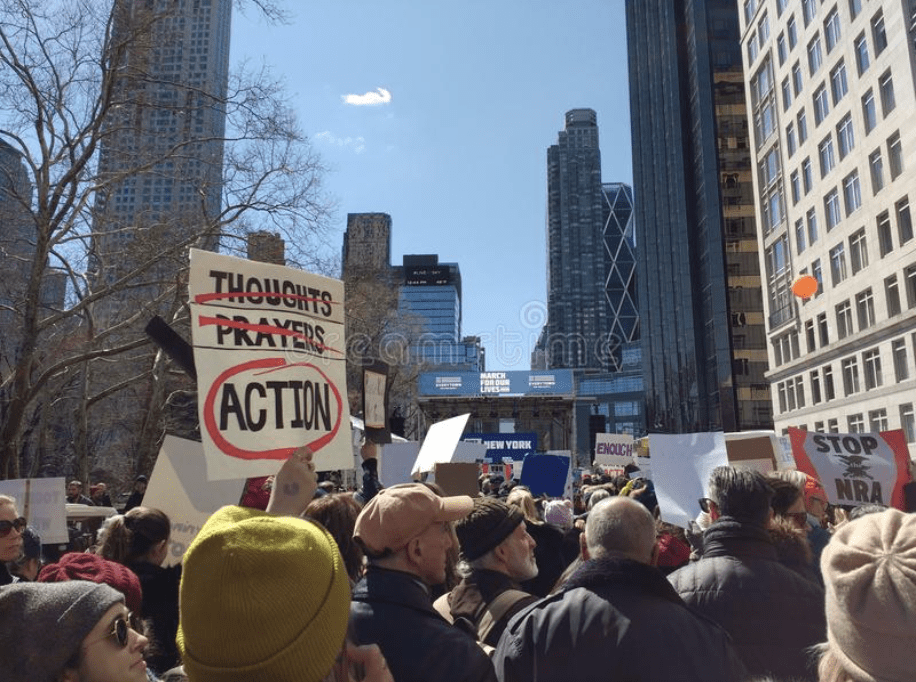In recent years, gun violence has emerged as an increasingly devastating issue in our society, claiming countless lives and leaving communities traumatized. This alarming situation warrants an urgent call for immediate action. Among the various dimensions that contribute to this crisis, the relationship between mental health and gun violence has taken center stage. By examining the significance of early intervention in addressing mental health concerns, we can better understand the role it plays in mitigating gun-related tragedies. In this article, we will delve into the complex connection between mental health and gun violence and highlight the importance of early intervention as a crucial solution. Furthermore, we will explore different initiatives, such as national gun buyback programs, which can aid in reducing the number of firearms in circulation and subsequently, gun violence.
The Relationship Between Mental Health and Gun Violence: A Complex Issue
It is essential to recognize that the association between mental health and gun violence is multifaceted and not easily simplified. While mental illness may play a role in certain instances of gun violence, it is not the sole determinant. A combination of social, economic, and individual factors can contribute to a person’s propensity for violence. Therefore, it is imperative to address mental health issues from a holistic standpoint, focusing on early intervention and comprehensive support systems.
The Significance of Early Intervention
Early intervention refers to the identification and treatment of mental health concerns as soon as they become apparent, often in childhood or adolescence. This approach is pivotal in preventing the exacerbation of these issues and their potential consequences, such as gun violence. Studies have shown that early intervention can improve mental health outcomes, reduce the risk of violence, and promote overall well-being.
Benefits of early intervention include:
Timely diagnosis and treatment: Early intervention allows for the prompt identification and management of mental health concerns, thus preventing the escalation of symptoms and possible involvement in violent behavior.
Reducing stigma: By fostering open conversations about mental health and promoting awareness, early intervention can help break down the stigma that often surrounds mental illness, ultimately encouraging more individuals to seek help.
Enhanced support networks: Early intervention can facilitate the establishment of robust support systems, which can provide individuals with the necessary resources and guidance to cope with mental health challenges and reduce the likelihood of engaging in violent acts.
Improved educational and career outcomes: By addressing mental health issues early on, individuals can experience greater success in academic and professional pursuits, further reducing the risk of involvement in violence.
Strategies for Implementing Early Intervention
There are several strategies that can be employed to promote early intervention and foster a healthier, more supportive environment for individuals struggling with mental health issues. Some of these strategies include:
School-based programs: Incorporating mental health education and support services within schools can help identify at-risk students and provide timely intervention. Schools can also facilitate anti-bullying initiatives and promote a culture of empathy and inclusion.
Accessible mental health care: Ensuring that individuals have access to affordable and culturally competent mental health services can promote early intervention and improve mental health outcomes. Expanding insurance coverage and investing in community-based care can help make these services more readily available.
Public awareness campaigns: Raising public awareness about mental health and the importance of early intervention can encourage individuals to seek help and support their loved ones. Media campaigns, community events, and partnerships with influential figures can be effective means of spreading awareness.
Collaboration between mental health professionals and law enforcement: Strengthening communication and collaboration between mental health professionals and law enforcement can help identify and support individuals who may be at risk for violent behavior, as well as ensure appropriate crisis response and diversion from the criminal justice system.
Supporting initiatives like the GunBuyback.org: By participating in and promoting initiatives such as the gun buyback intiative of GunBuyback.org, communities can help reduce the number of firearms getting into the wrong hands. These programs encourage the voluntary surrender of firearms in exchange for incentives, contributing to a safer environment and minimizing the potential for gun-related incidents.
Parental involvement and education: Encouraging parental involvement in their children’s mental health and well-being can be instrumental in early intervention. Providing parents with the resources and knowledge to recognize signs of mental health issues and seek appropriate care can help prevent potential crises.
Workplace mental health initiatives: Employers can play a significant role in promoting early intervention by creating a supportive work environment that prioritizes mental health. This can include offering mental health resources, implementing flexible work arrangements, and providing training for managers to recognize and address mental health concerns among employees.
Peer support programs: Peer support can be an invaluable tool in promoting early intervention, particularly among young people. By training individuals to recognize signs of mental health issues and provide support to their peers, communities can create a culture of understanding, empathy, and help-seeking.
The Road Ahead: A Call for Collective Action
The relationship between mental health and gun violence is undeniably complex, and addressing this issue requires a multifaceted approach. Early intervention is a critical component of this strategy, offering the potential to significantly reduce the risk of violence and improve mental health outcomes for countless individuals. By implementing comprehensive early intervention programs and supporting initiatives like GunBuyback.org, we can create a safer, more supportive society for all.
It is essential to recognize that this monumental task cannot be accomplished by any single entity or sector. Collaboration among schools, mental health professionals, law enforcement, community organizations, and individuals is vital to achieving meaningful change. As we continue to grapple with the devastating consequences of gun violence, let us remember the importance of early intervention in addressing mental health concerns and unite in our efforts to create a safer, healthier future for generations to come.



































